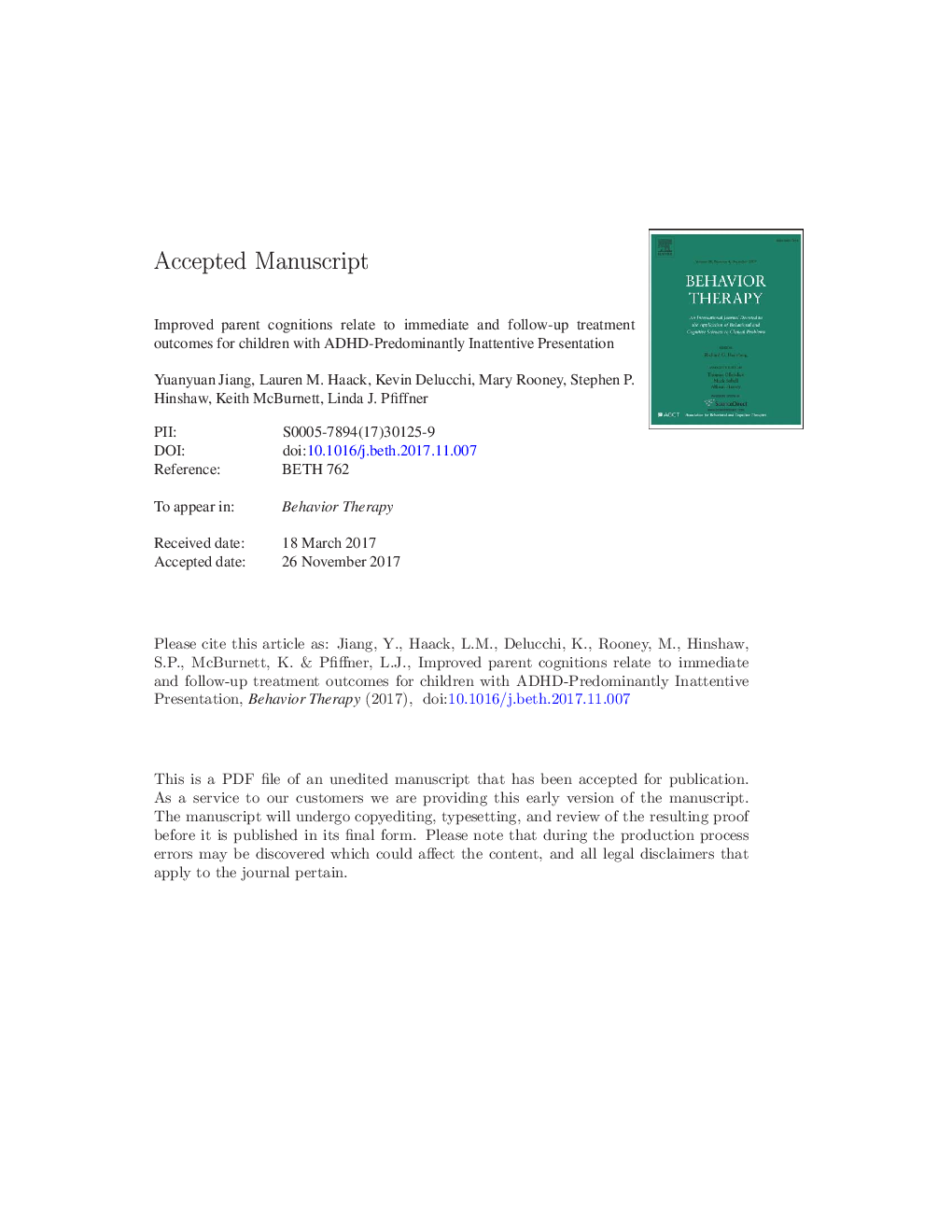| Article ID | Journal | Published Year | Pages | File Type |
|---|---|---|---|---|
| 7261622 | Behavior Therapy | 2018 | 42 Pages |
Abstract
We investigated treatment effects on parenting self-efficacy and parent cognitive errors, and whether these parent cognitions are related to short- and long-term outcomes in parenting behaviors in psychosocial treatment for youth with attention-deficit/hyperactivity disorder, predominantly inattentive presentation (ADHD-I). In a randomized controlled trial across two sites (University of California, San Francisco, and University of California, Berkeley), 199 children between the ages of 7 and 11 were randomized to the Child Life and Attention Skills (CLAS; n = 74) program, parent-focused treatment (PFT; n = 74), or treatment as usual (TAU; n = 51). Parents reported on self-efficacy, cognitive errors, positive parenting, and negative parenting prior to treatment, immediately after treatment, and in the next school year at follow-up. Compared to TAU, CLAS and PFT had higher posttreatment parenting self-efficacy, and CLAS alone had lower posttreatment parent cognitive errors. At follow-up, only CLAS had improved parent cognitive errors compared to TAU. No other between-group differences were found in parenting self-efficacy or cognitive errors. Improved parenting self-efficacy was associated with improved posttreatment negative parenting outcomes for PFT and CLAS, and improved parent cognitive errors were also related to improvements in positive and negative posttreatment parenting outcomes for CLAS. Posttreatment parenting self-efficacy mediated follow-up negative parenting outcomes for CLAS and posttreatment parent cognitive errors mediated improved follow-up positive and negative parenting outcomes for CLAS. PFT and CLAS led to enhanced parenting self-efficacy, and CLAS appears especially robust in improving parent cognitive errors both in the short and long term. Pathways provide support for the possibility of parent cognitions as mediators of treatment effects on parenting; clinical focus on such cognitions may be useful.
Related Topics
Health Sciences
Medicine and Dentistry
Psychiatry and Mental Health
Authors
Yuanyuan Jiang, Lauren M. Haack, Kevin Delucchi, Mary Rooney, Stephen P. Hinshaw, Keith McBurnett, Linda J. Pfiffner,
